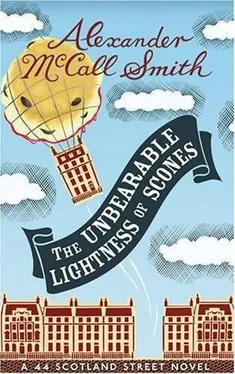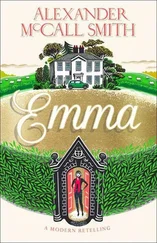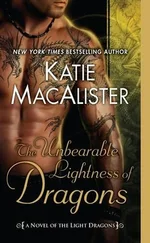Alexander Smith - Unbearable Lightness of Scones
Здесь есть возможность читать онлайн «Alexander Smith - Unbearable Lightness of Scones» весь текст электронной книги совершенно бесплатно (целиком полную версию без сокращений). В некоторых случаях можно слушать аудио, скачать через торрент в формате fb2 и присутствует краткое содержание. Жанр: Триллер, на английском языке. Описание произведения, (предисловие) а так же отзывы посетителей доступны на портале библиотеки ЛибКат.
- Название:Unbearable Lightness of Scones
- Автор:
- Жанр:
- Год:неизвестен
- ISBN:нет данных
- Рейтинг книги:4 / 5. Голосов: 1
-
Избранное:Добавить в избранное
- Отзывы:
-
Ваша оценка:
- 80
- 1
- 2
- 3
- 4
- 5
Unbearable Lightness of Scones: краткое содержание, описание и аннотация
Предлагаем к чтению аннотацию, описание, краткое содержание или предисловие (зависит от того, что написал сам автор книги «Unbearable Lightness of Scones»). Если вы не нашли необходимую информацию о книге — напишите в комментариях, мы постараемся отыскать её.
Unbearable Lightness of Scones — читать онлайн бесплатно полную книгу (весь текст) целиком
Ниже представлен текст книги, разбитый по страницам. Система сохранения места последней прочитанной страницы, позволяет с удобством читать онлайн бесплатно книгу «Unbearable Lightness of Scones», без необходимости каждый раз заново искать на чём Вы остановились. Поставьте закладку, и сможете в любой момент перейти на страницу, на которой закончили чтение.
Интервал:
Закладка:
“This suit of mine,” he said to Matthew, who was seated opposite him on the train, “is mean-spirited. Just like the age we live in.”
Matthew glanced at his friend’s outfit. “You could have it let out. You could speak to Mr. Low at Stewart Christie.”
Angus shook his head. “I’d be ashamed to show it to Mr. Low,” he said. “I bought this suit on Princes Street about ten years ago. And you know how awful Princes Street is now. It’s like some muckle grand souk. It really souks.”
When Angus burst out laughing at his own joke, a few other people in the carriage threw glances. They were both so obviously going to a funeral, with their dark suits and black ties: laughter, surely, was unseemly.
“You drew a few disapproving looks, there,” said Matthew sotto voce. “You’re not meant to laugh on your way to these solemn occasions.”
Angus made a dismissive gesture. “Talking of Princes Street,” he said, fishing for a silver hip-flask from his pocket, “Domenica was up to high doh the other day over the price of scones in Jenners tea room doubling overnight. She hadn’t actually been there for tea for some time, but she had bumped into Stuart Brown who works round the corner and drops in there from time to time. He told her.”
“That’s serious,” said Matthew, nodding his head in the direction of the hip-flask. “Dutch courage?”
Angus smiled. “I always take a dram to these occasions, Matthew. They’re so bleak otherwise.”
Matthew understood, but politely declined the flask when Angus offered him a swig.
“It’s Glenmorangie,” said Angus. “I have a couple of bottles in the house. The old stuff. Have you seen the new bottles? They’re making a whisky called Nectar d’Òr now. Apparently “òr” is a Gaelic word. But the whole thing looks somewhat French to me. I don’t know why. I just get that impression.”
“Perhaps they want the French to drink it?” suggested Matthew. “The whisky people are very interested in their image. They don’t want people to associate whisky with people like…” He stopped himself, just in time. He had intended to say people like you.
Angus looked at him sharply. “With people like me, Matthew? Is that what you mean?”
Matthew smiled. “I suppose so.” And then he added hurriedly: “Not that there’s anything wrong with people like you, Angus. It’s just that we can’t continue to be all tweedy and fusty, you know. Not if we want to sell our whisky.”
“But isn’t this meant to be a tweedy and fusty country?” asked Angus. “And isn’t that what people like? Isn’t that why they come to visit us and buy our whisky and so on? Precisely because we’re not like everyone else?”
Matthew did not reply. But Angus was warming to his theme. “That slogan that you see, ‘One Scotland, Many Cultures.’ If it’s meant to be directed at tourists – and surely they don’t intend to spend our money telling us what to think – then what a bit of nonsense! Do they seriously think that anybody is going to come to Scotland to see multiculturalism? What pious nonsense! People come to Scotland to see traditional Scottish things. That’s why they come. They come to see our scenery.” He pointed out of the window. They were passing through Falkirk. “They come to get a sense of our history. Old buildings. Mists. All that stuff, which we do rather well.” He paused, and took a sip from his flask. “They don’t come to see our social engineering programmes.”
Matthew thought about this. Angus had outspoken views, often wrong, but he was probably right about visitors. Any visitor he had met had wanted the tartan myths to be true. And they were always proud of having Scots blood way back in the mists of time. A great-grandfather who had come from Aberdeen, or something like that. It was powerful, simply because people wanted some sense of belonging, of being from somewhere. And the modern world, he supposed, with its shifting, dislocated urban populations was the antithesis of that.
Angus adjusted his tie uncomfortably. “Glasgow,” he said, looking thoughtfully out of the window. They were not there yet, but then he muttered, “The dear green place.”
“Yes,” said Matthew. “It’s a great place. Great people. But then you get characters like Lard…”
“If they wanted a slogan,” mused Angus, “they could have said, ‘One Country, Two Cities.’” How about that, Matthew? Wouldn’t that have said it all?”
Matthew reflected on this. “Poor Lard,” he said.
Angus nodded. “He’ll get a good send-off, though. They go in for those things in Glasgow. Big flowers.”
“And a wake?”
Angus brightened. “Oh yes, that’ll be quite an occasion,” he said. “Mind you, I’m not sure if we should attend. I’m not being stand-offish, but do you realise who’ll be there, Matthew? All those big Glasgow gangsters. Ice cream franchise people. I rather suspect that you and I will be out of our depth. This won’t be like an opening at your gallery, you know.”
“Let’s wait and see.”
There followed a long period of silence. Then, as they neared Glasgow, Angus remarked, “It must be difficult for the minister. Or in Lard’s case, the priest. He must know the score. He must know what Lard was like.”
Matthew agreed. And yet, was that not the whole point? That sins were forgiven? That each of us, whoever we were, however imperfect, was loved? And was that not what he and Angus were saying, in going across to Glasgow in these suits, these black ties; were they not saying that ultimately we are all brothers and sisters, united in our humanity? He was imperfect; Angus was imperfect (and fusty too); Lard was imperfect. But was it not all these flaws, manifold and diverse, that united us all, made us one?
The Edinburgh to Glasgow train is a place of many thoughts; these were Matthew’s as they drew slowly into Queen Street Station.
80. Let Us Now Praise a Rather Infamous Man
Angus, crammed into a crowded pew with Matthew and eight other people, watched as an elderly man in a black suit walked up to a lectern and cleared his throat.
“I have been asked,” said the man, “to say a few words about the man to whom we have all come to say farewell: Aloysius Ignatius Xavier O’Connor. RIP.
“I was Aloysius’s teacher and that is why I am standing here talking to you today. It is not something, I should point out, that any teacher relishes – that he should speak at the funeral of one of his pupils. It should be the other way round. But life has a way of turning things on their heads, and the old may on occasion have to say goodbye to the young.
“Young Lard – I mean, Aloysius – well, perhaps I should call him by the name that everybody knew him by. And I don’t think that he would mind unduly. So I shall call him Lard. Young Lard was a funny wee boy when I first taught him. He had that look in his eye that you get to know as a teacher – the look that says: I’m going to be out of the ordinary. Many of you will remember Father Joe, such a character himself, and a good man. I remember his saying to me, ‘That wee boy will make his mark, so he will.’ And he did, of course.
“Lard was not always easy when he was a wee boy – and I think he’d be the first to admit that. He was very keen on borrowing things, and I often had to go round to the O’Connor house and remind him to return things he had borrowed from the school. But he always helped me to carry them back to the school, and his mother always made me a fine cup of tea when I called on those errands.
“He was very popular with the other boys, and he remained well-liked by others for the rest of his life. When he was at Polmont, he always helped the younger boys find their way about the place and settle in. He could not abide bullying, and there was many a bully who was hospitalised by Lard. But he always took them flowers in the hospital afterwards, which shows the sort of man he was. In that great frame of his there beat a generous heart.
Читать дальшеИнтервал:
Закладка:
Похожие книги на «Unbearable Lightness of Scones»
Представляем Вашему вниманию похожие книги на «Unbearable Lightness of Scones» списком для выбора. Мы отобрали схожую по названию и смыслу литературу в надежде предоставить читателям больше вариантов отыскать новые, интересные, ещё непрочитанные произведения.
Обсуждение, отзывы о книге «Unbearable Lightness of Scones» и просто собственные мнения читателей. Оставьте ваши комментарии, напишите, что Вы думаете о произведении, его смысле или главных героях. Укажите что конкретно понравилось, а что нет, и почему Вы так считаете.












